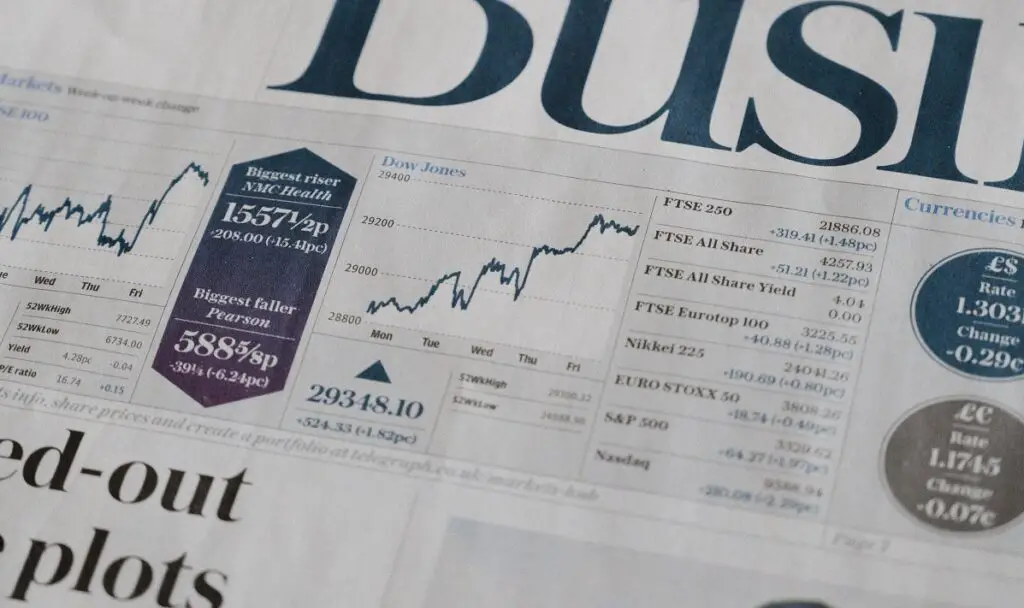
The number one rule in investing is: Don’t lose money. At least according to Warren Buffet, not that I would disagree. I like my money and I want to keep it and have it grow larger and make me wealthier. So then the big question is how do I keep my money safe and grow. Is my money safer in larger stocks or smaller stocks?
Large Cap Stocks are safer because they have more established revenue streams that are better diversified. This cushions them from market downturns, but slows reaction time to industry changes. Small cap stocks are thought to have more fraud, but are not much worse than large cap stocks.
I am fully invested in small cap stocks and I firmly believe they are as safe as large cap stocks if they are properly analyzed. Small cap stocks are riskier than their large cap counterparts but this is based on volatility as a measure of risk. Volatility doesn’t properly measure risk which is why I welcome if it is upward volatility.
Individual Stock Investing vs Index Fund Investing
On an individual level small cap stocks are definitely riskier than their large cap counterparts. Their customers and revenues are likely not well diversified compared to their larger counterparts, but this can be solved by some analysis of their revenue streams.
Small cap stocks typically have their revenue streams and percentages listed in their 10K’s. This makes it easy to see just how much revenue diversification risk they have. Some small caps may even be better diversified than their larger counterparts.
But, this is all besides the point. On an individual level all individual stocks are riskier than a basket of stocks. So lets take a look at the risk of multiple small caps vs large caps as index funds.
The Largest US Stock Market Index ETF’s
When looking at ETF’s that track indexes they are all going to be around the same volatility and returns. The only difference will be the expense ratio that they charge their customers.
So lets go ahead and take a look at one of the Largest ETF’s that tracks the 500 largest company’s in the United States. This is the S&P 500 and the go to metric for all US stocks since it tracks more stocks than the DOW. It’s beta is always around 1 since it is what most risk is measured against.
A beta of one theoretically means there is no volatility in comparison to the overall market. Now we know that the stock market does change so its only good to use when measuring against other indexes or individual stocks.
Russel 2000 Small Cap Stocks
By comparison the Russel 2000 stock index has a beta of 1.25. Theoretically this means that the stocks contained in this index are 25% more volatile and by comparison riskier than the SPY ETF. But, this is actually not very useful as a measure of risk.
You see this only means that those stocks swing more widely than the SPY ETF, but it doesn’t say in which direction. If a stock is cheap enough the volatility could potentially be positive leading to better returns on your capital.
The key is using fundamental analysis to see if a stock is trading at a lower price than all the underlying assets are worth.
On this website I analyze stocks that are trading below the valuation of their underlying assets, and potentially have a very low downward volatility.
Dividends Decrease Volatility
Dividends tend to decrease volatility as it promotes more long term buy and hold investing. As a result many Large Cap companies have a much higher chance of having dividends than their small cap counterparts.
This isn’t to say that small caps are devoid of dividends. Many small cap companies actually pay out rather large dividends.
Japanese Stock Volatility Displaces Beta Risk Theory
An interesting development on volatility that I did not expect to see was how little volatility there was in Japanese markets. Not only were the stocks less volatile but small cap Japanese equities were even less volatile than large cap Japanese equities.
If we were to take beta as the only measure of risk that would mean that small cap Japanese stocks are among the least risky stocks in the entire world. Which completely turns the theory that small cap stocks are riskier than their larger counterparts.
We can see this phenomenon play out in both WisdomTree and iShares ETF Funds. Lets take a look and compare the larger of the two ETF companies iShares.
- iShares EWJ ETF: Beta = .7 over 10 years.
- iShares SCJ ETF: Beta= .56 over 10 years.
Over this relatively long period of time Japanese small caps have proven less volatile. This is a very interesting development and I have a few theories on this.
- Japanese small cap stocks have less international coverage.
- Japan has a far more democratic market which keeps stocks stable because of massive competition.
- Japan has more long term investors in the small cap space because of stock perks.
- Japanese small caps have less international sales exposure.
Prices are relatively stable in Japan so its difficult for any one company to get a leg up on competition. This is why if a company wants to expand they typically do so by expanding internationally.
Growth vs Value and Blitzscaling
When comparing a growth and value small Cap ETFs there doesn’t seem to be much difference in volatility. They are both around 25% more volatile than their large cap counterparts.
This is interesting since you would think that growth stocks would typically be more risky than value stocks. The answer to the reason why it isn’t could be a result of survivorship bias. Well not exactly survivorship as a company but more as an index.
If a stock jumps an index it will become a part of another larger index and thus no longer contribute to the volatility of the smaller index.
It may very well be the advent of blitzscaling which is for tech companies to grow as fast as they can regardless of profit is making the large cap market space more volatile and making the small cap space look less volatile between growth and value disciplines as a result.
But that’s just a theory of mine.
One development that is very real is that these blitzscaling companies are in fact creating more volatility as they disrupt the status quo. These companies are being touted as safe bets in the large cap space even while they have no profits to speak of and may in fact never turn a profit.
Individual Stock Fraud Decreases Safety
Volatility is one thing but frauds are something else entirely. There is no 100% guarantee that you are investing in a perfectly honest company and this goes for both large caps and small cap companies.
But, there are some ways to mitigate potential fraud.
- Invest in dividend companies.
- Invest in countries with rule of law and good corporate governance.
- Pay attention to financial reports and note any irregularities.
I made the mistake of investing in a small cap company that operated in a region that was very unstable. It was in the Ukraine region and was listed on the Polish stock market. Although the Polish stock market may be a safe place to invest, the same cannot be said for the country of operation.
Sadly my entire stock has gone to zero because the company went dark. The management most likely just ran off with the money and operates outside of Poland’s rule of law.
This is what makes international investing risky. So it may be best to stick to countries that care about individual shareholders.
Final Thoughts on Risk in Small Cap vs Large Cap Stocks
In my opinion the risks on small cap stocks are largely overblown. Large cap stocks are no less risky than small cap stocks are in terms of return potential. In fact small cap stocks have greater returns than large cap stocks over time.
As long as you have a portfolio of at least 20 stocks your portfolio will have less single stock risk. You can then increase or decrease your portfolios volatility or overall swings by monitoring each stocks individual beta.
